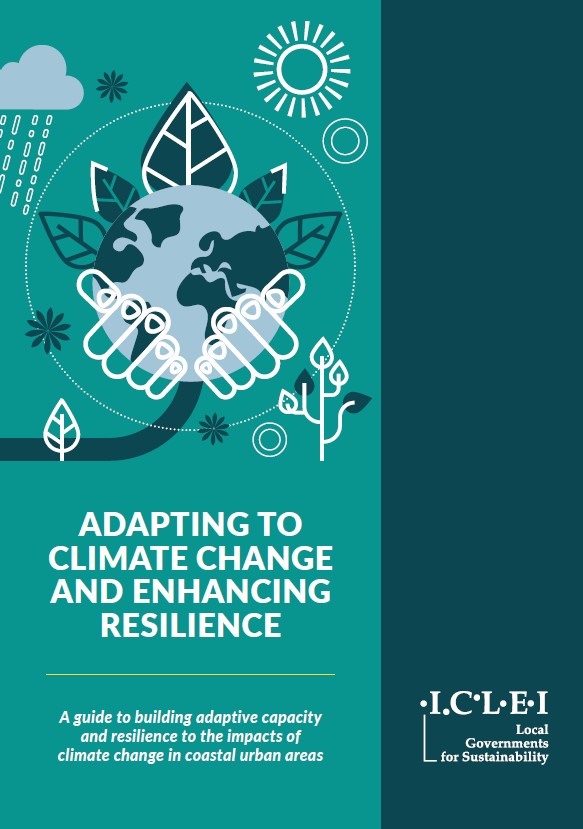Enhancing Resilience Of Farmers In The Face Of Climate Change
Climate change is an urgent global issue that affects individuals, communities, and ecosystems across the world. It poses significant challenges and requires collective action to mitigate its impacts. In this article, we will explore the importance of adapting to climate change and enhancing resilience. We will discuss various strategies, ideas, recommendations, and answer common questions related to this topic.

Adapting to climate change involves making adjustments to our social, economic, and environmental systems to minimize its negative consequences. By enhancing resilience, we can better prepare ourselves and our communities to withstand the impacts of climate change and recover more quickly.
What is climate change? Climate change refers to long-term shifts in temperature, precipitation patterns, and extreme weather events due to human activities and natural factors. These changes can have severe consequences, such as rising sea levels, increased temperatures, changes in precipitation patterns, and more frequent and intense storms.
What is the Importance of Adapting to Climate Change?
Adapting to climate change is crucial to ensure the well-being and sustainable development of communities and ecosystems. Here are some key reasons why adapting to climate change is of utmost importance:
- Protecting vulnerable communities: Climate change disproportionately affects vulnerable populations, including those living in low-lying coastal areas, arid regions, and developing countries. By adapting to climate change, we can protect these communities from the adverse impacts and prevent further inequalities.
- Safeguarding natural resources: Adapting to climate change helps us safeguard our natural resources, such as forests, water bodies, and biodiversity. These resources are essential for maintaining ecosystem services, supporting livelihoods, and providing a healthy environment for all living beings.
- Reducing economic losses: Climate change can lead to significant economic losses, including damage to infrastructure, agricultural losses, and increased healthcare costs. By adapting to climate change, we can minimize these losses and create more resilient economies.
- Promoting sustainable development: Adapting to climate change is closely linked to sustainable development. By integrating climate change adaptation measures into development planning, we can ensure long-term sustainability and create a better future for generations to come.
Ideas For Adapting to Climate Change and Enhancing Resilience
There are various ideas and strategies that individuals, communities, and governments can adopt to adapt to climate change and enhance resilience. Here are some examples:
- Investing in renewable energy sources: Transitioning from fossil fuels to renewable energy sources, such as solar and wind power, can reduce greenhouse gas emissions and promote sustainable energy practices.
- Promoting sustainable agriculture: Implementing sustainable agricultural practices, such as organic farming, agroforestry, and efficient irrigation systems, can help build resilience in the agricultural sector and ensure food security.
- Building climate-resilient infrastructure: Constructing infrastructure that can withstand climate-related hazards, such as floods and storms, is essential to protect communities and minimize damage.
- Creating green spaces: Increasing the number of green spaces in urban areas can enhance resilience by providing natural cooling, improving air quality, and reducing the heat island effect.
- Implementing climate education programs: Raising awareness about climate change and its impacts is crucial to inspire action and encourage individuals to adopt sustainable practices in their daily lives.
Recommendations For Adapting to Climate Change
Based on scientific research and best practices, here are some recommendations for adapting to climate change:
- Integrating climate change considerations into urban planning and development strategies.
- Implementing policies and regulations that promote energy efficiency and carbon neutrality.
- Investing in climate monitoring and early warning systems to reduce the impacts of extreme weather events.
- Supporting local and indigenous knowledge systems in climate change adaptation efforts.
- Enhancing international cooperation and collaboration to address climate change at a global level.
Listicle of Effective Strategies for Adapting to Climate Change
Looking for practical steps to adapt to climate change? Check out these effective strategies:
- 1. Improve energy efficiency in your home by using energy-saving appliances and insulating your house.
- 2. Reduce water consumption by fixing leaks, using water-efficient fixtures, and practicing water-saving habits.
- 3. Plant native and climate-resilient species in your garden to support local biodiversity.
- 4. Reduce waste generation by practicing recycling, composting, and opting for minimal packaging.
- 5. Support sustainable transportation options, such as walking, cycling, or using public transportation.
Question & Answer
Here are some common questions related to climate change adaptation:
Q: Why is it important to involve local communities in climate change adaptation efforts?
A: Local communities have valuable knowledge about their specific environmental conditions and vulnerabilities. Involving them in climate change adaptation efforts ensures that solutions are context-specific, effective, and sustainable.
Q: What are the potential economic benefits of climate change adaptation?
A: Climate change adaptation can create new economic opportunities, such as the development of green technologies, renewable energy industries, and sustainable business models. It can also prevent significant economic losses associated with climate-related disasters.
Q: How can individuals contribute to climate change adaptation?
A: Individuals can contribute to climate change adaptation by adopting sustainable practices in their daily lives, such as reducing energy consumption, practicing conservation, supporting local businesses, and advocating for climate-friendly policies.
Summary of Adapting to Climate Change and Enhancing Resilience
Adapting to climate change and enhancing resilience is vital for the well-being of our planet and future generations. By implementing effective strategies, promoting sustainable practices, and collaborating on a global scale, we can address the challenges posed by climate change and create a more resilient and sustainable world.

Post a Comment for "Enhancing Resilience Of Farmers In The Face Of Climate Change"